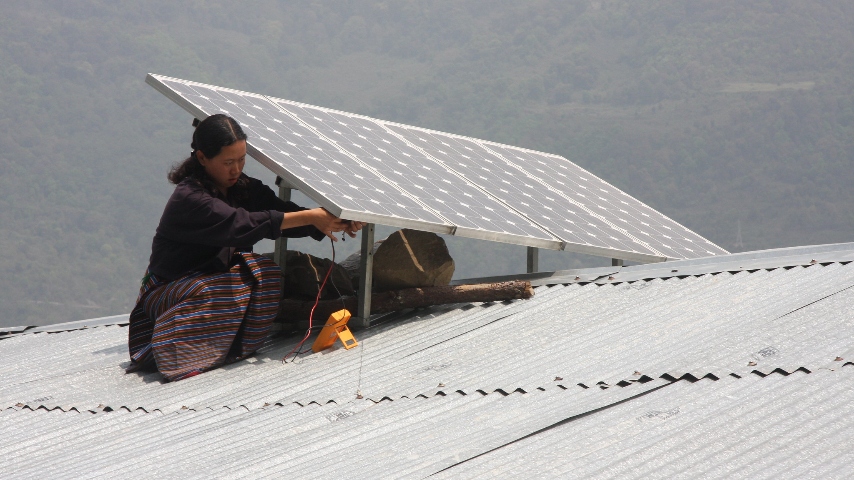The Exponential Roadmap Initiative today launched a White Paper proposing to use artificial intelligence tools to support the scale-out of clean energy infrastructure globally.
The proposal comes as a global coalition led by the European Union (EU) pushes for an agreement to triple renewable energy by 2030 at the upcoming UN climate conference COP28. Earlier this year, the International Energy Agency (IEA) called on governments to triple global renewable capacity by 2030 ahead of COP28.
Tripling renewable energy by 2030 requires a pipeline of bankable clean energy projects
But the authors of the White Paper A.I. for Clean Energy: Accelerating Project Pipeline Development Globally point out that achieving this goal requires a pipeline of bankable projects that does not exist at the scale needed. “Clean energy expansion is often piecemeal, opportunistic and ignores climate justice,” says lead author Owen Gaffney, Co-founder of the Exponential Roadmap Initiative.

Renewable energies need scaling globally. Photo: ADB / Climate Visuals
Gaffney and the author team, including international experts in architecture, machine learning and public policy, argue that AI technology can help: AI could be used to remove barriers and friction particularly in the Global South, by assessing optimal sites against a range of environmental, social and financial criteria, and localise processes using best practices from around the world.
“We think we can identify projects worth $1 trillion in 12 months and $2 trillion in 24 months,” says Gaffney. “Our tool will provide financial analysis to find the most cost-effective solutions, and optimise regulatory, auctioning and environmental assessment processes.”
Scaling clean energy a must to address the climate emergency
Gaffney grants that barriers would have to be overcome for the proposal to succeed, such as incoherent government policies in many places, and a tough financial climate of high interest rates and inflation. But, he adds:
“This is a climate emergency. We must do everything we can to scale out wind and solar immediately. Outside of China and Europe, it is simply scaling too slowly. A.I. tools can certainly reduce friction and support knowledge transferWe want to get a project like this off the ground as soon as possible.”

